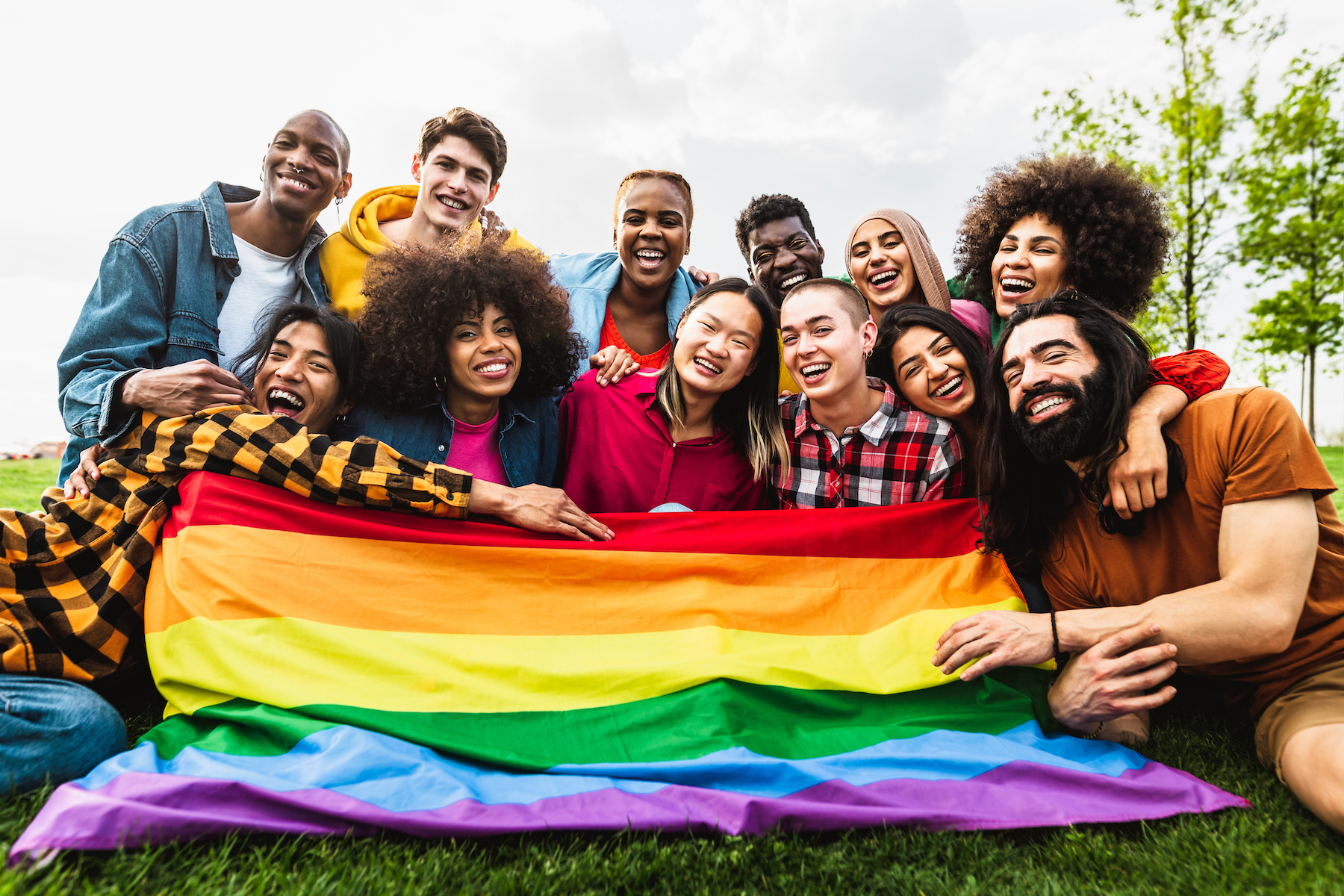On June 1, Mayor Muriel Bowser raised the LGBTQIA+ pride flag at the John A. Wilson Building to kick off Pride Month in the District of Columbia, an annual celebration honoring the District’s lesbian, gay, bisexual, transgender, and queer residents. Capital Pride’s theme, “Peace, Love, Revolution,” also serves as a reminder of the ongoing fight for social justice. Bias and discrimination are among the factors contributing to persistent disparities in health and mental health for this diverse community.
While Pride Month commemorates the resiliency of the LGBTQ+ community, behind the festivities often lies a deeper narrative of personal struggle. Nationally, LGBTQ+ individuals are more likely to report having fair or poor health or mental health issues than their non-LGBTQ+ counterparts. LGBTQ adults are also more likely than non-LGBTQ adults to report having experienced economic and mental health hardships during the COVID-19 pandemic. In the District, LGBT adults were more likely to be diagnosed with asthma and depressive disorder than non-LGBT adult residents.
Research suggests that stigmatization, societal prejudice, and a lack of acceptance can increase rates of anxiety, depression, substance abuse, and suicide among LGBTQ+ youth and adults while also creating barriers to accessing care. Pride Month offers an opportunity for a renewed commitment to address these challenges head-on and to promote the physical and mental well-being of people in the LGBTQ+ community.
Today at noon, Integrated Care DC will host part two of the LGBTQ+ Cultural Competency training series to continue exploring topics discussed in part one. The webinar will include provider perspectives on best practices for cultural competence to meet the medical, behavioral health, and social needs of individuals who identify as LGBTQ+ and on the importance of collecting, storing, and using Sexual Orientation, Gender Identity, and Gender Expression (SOGIE) data to improve care and outcomes.
Remember to check the District’s continuing education requirement for license renewals. Currently, physicians, registered nurses, pharmacists, social workers, psychologists, and other licensed professionals are required to complete at least two hours of training focused on LGBTQ cultural competency.
Members of DC’s LGBTQ+ community can also tap into support networks, organizations, mental health resources, and crisis services focused on the health and well-being of the LGBTQ+ community, including the following DC-based resources:
-
- The DC Center for the LGBT Community provides a range of services, including support groups, counseling, health programs, and cultural events: https://thedccenter.org
- Whitman-Walker Health, a federally-qualified health center, offers comprehensive health and wellness services, including primary care, HIV/AIDS treatment, mental health counseling, and transgender health services: https://www.whitman-walker.org
- SMYAL (Supporting and Mentoring Youth Advocates and Leaders) focuses on supporting LGBTQ+ youth in the DC metropolitan area: https://smyal.org
- Whitman Walker Legal Services works with clients to resolve legal barriers to improved health and wellness: https://www.whitman-walker.org/legal-services
- The Mayor’s Office of Lesbian, Gay, Bisexual, Transgender, and Questioning Affairs connects LGBTQ+ residents with city services and advocates for programs, policies, and resources for at-risk LGBTQ+ populations: https://communityaffairs.dc.gov/molgbtqa
Lastly, for individuals who are feeling anxious, depressed, or in crisis, help is also available 24 hours a day, 7 days a week:
-
- Call the Access HelpLine at 1(888)7WE-HELP or 1-888-793-4357 to connect to services provided by the Department of Behavioral Health and its certified behavioral health care providers.
- Call, text, or chat 988 for the 988 Suicide & Crisis Lifeline, which provides free and confidential emotional support to people in suicidal crises or emotional distress.

